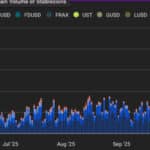
(Eric Savitz has become increasingly bearish over the last several months. Today's column is a good summation of his recent views. This is quite interesting because he has usually come across as fairly astute on tech-land matters and his current perspective is a bit at odds with the views of Hickey, Faber & Fleck who have, as of late, been more bullish of select large tech. -AM)
Barron's
By Eric Savitz
February 21, 2009
Investors seeking an entry point in this horrendous stock-market slide are faced with two inevitable but contradictory truths. In the long run, we'll surely see higher prices. But as John Maynard Keynes said, in the long run we are all dead.
Unafraid of Keynes, pundits keep trying to call the bottom. Demand, they say, will turn around in the second quarter. Or maybe Q3. Certainly by Q4. Or at least by 2010. Out come comparisons to the tech downturn in 2001-'02, or the 1973-'74 recession, or the Great Depression, or the bust in Japan, or some other financial crisis.
I find none of it convincing. Do you really think we're going to have a recovery in tech demand in the second half? Well, then I admire your optimism. I see no evidence anywhere. And if the recovery doesn't arrive until, say, mid-2010, we still have to endure another five to six more quarters of absolutely nasty earnings news.
Maybe the market has priced that in. And maybe not.
Last week, the market got a rude reminder of just how pervasive the downturn really is when Hewlett-Packard (ticker: HPQ) reported a sizable top-line miss for its fiscal Q1 ended in January, and provided highly disappointing guidance for the October 2009 fiscal year.
As perhaps the most broad-based tech company, HP offers investors a nice snapshot of what's happening in the sector. Unfortunately, almost everything it disclosed about its latest quarter contained ominous portents for other tech firms.
HP's Personal Systems Group, which sells PCs, saw revenue fall 19%. Desktop personal-computer revenue was down 25%, on a 15% decline in units, while notebook revenue was down 13%, on an 8% increase in units. This suggests that average selling prices over the past year fell 10% for desktop PCs and 21% for laptops -- reflecting not only shrinking demand but also the damaging effects of the netbook boom. And skeptics, beware: It's not just that netbooks are cheap. People actually like them: Research firm ChangeWave reports that a survey of PC buyers found netbook specialists Acer (2353.Taiwan) and Asus had higher customer-satisfaction ratings than any PC company other than Apple (AAPL).
That's trouble for everyone in the PC food chain. Dell (DELL) would appear particularly vulnerable here; we'll find out more when the company reports earnings this Thursday. Apple isn't immune, either; data from retail-sales tracker NPD finds Apple has lost U.S. retail-market share in PCs in each of the past three months; Mac sales fell 6% in January from the level a year earlier. The trend is also bad news for Intel, which makes less money from its netbook-oriented Atom processor than from other CPUs. It is bad for the disk-drive makers Western Digital (WDC) and Seagate (STX), since they make less money on lower-capacity drives. And it is bad for Microsoft (MSFT), which makes less per copy of Windows on netbooks than on higher-priced PCs.
HP also said its imaging and printing revenue was down 19% in the quarter. Consumer-printer revenue fell 37%, on a 31% drop in units. Commercial-printer revenue was down 34%, on a 39% drop in units. Supplies, HP's historic cash cow, dropped 7%. And it's hard to imagine that things are much better at HP rivals like Canon (7751.Japan), Epson (6724.Japan) and Lexmark (LXK).
Enterprise storage and server revenue was down 18%. That includes a 7% drop in storage, a 22% decline in industry-standard servers and a 17% tumble in business-critical systems. In those data points, I see bad omens for EMC (EMC), Sun Microsystems (JAVA), IBM (IBM) and a host of enterprise-hardware players. Finally, HP had a 7% fall in software revenue.
Not surprising, that software slid less; that's the beauty of long-term maintenance contracts. But when people stop buying hardware, they buy less software. Remember that when you assess stocks like Oracle (ORCL), SAP (SAP) and Salesforce.com (CRM).
And that takes us back to where we started. Somewhere, a massive rally is waiting to happen. And some day, the Cubs will win the Series. But I'm reluctant to bet on either. (Low blow Eric. This is the Cubs year!Woo -Woo!. -AM)




No comments:
Post a Comment